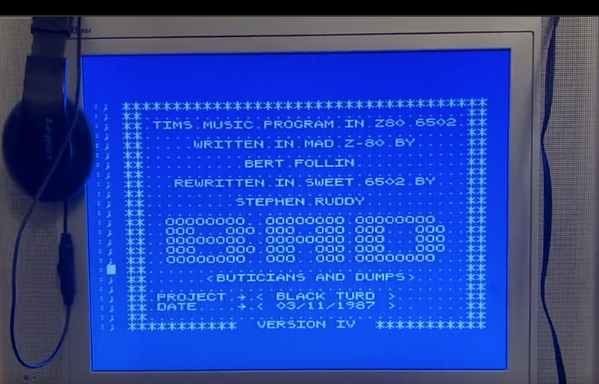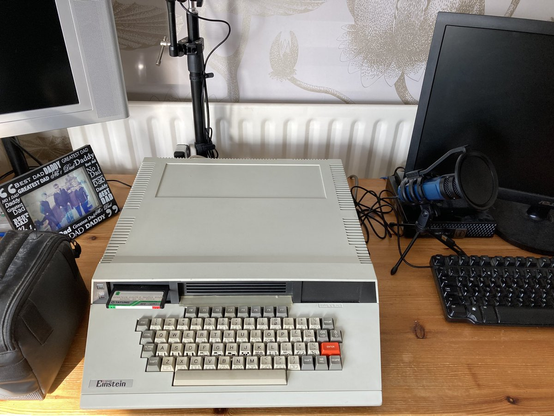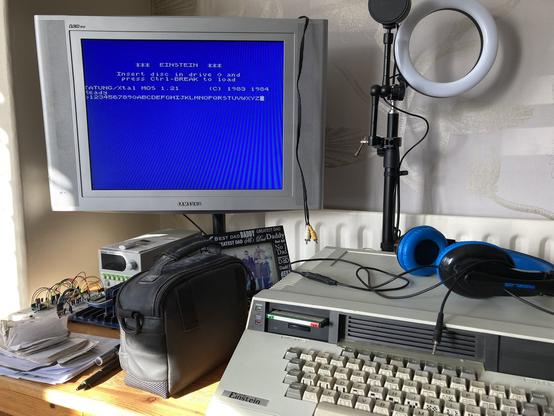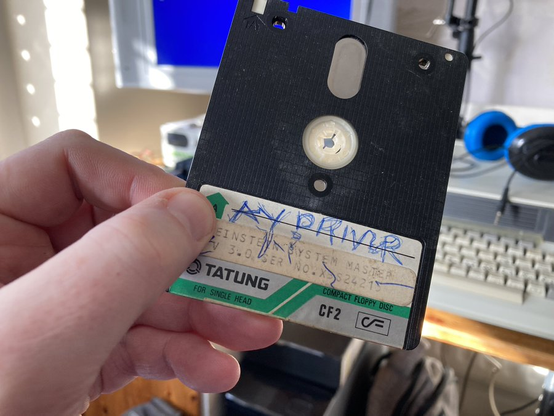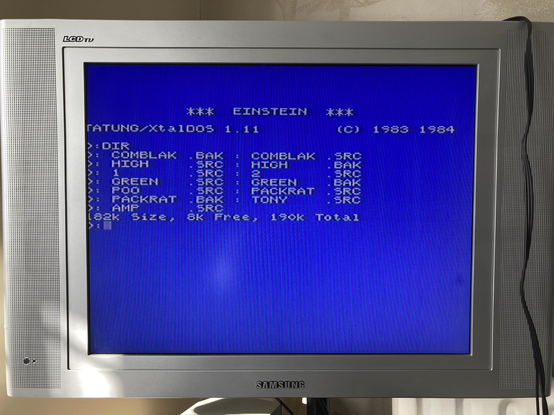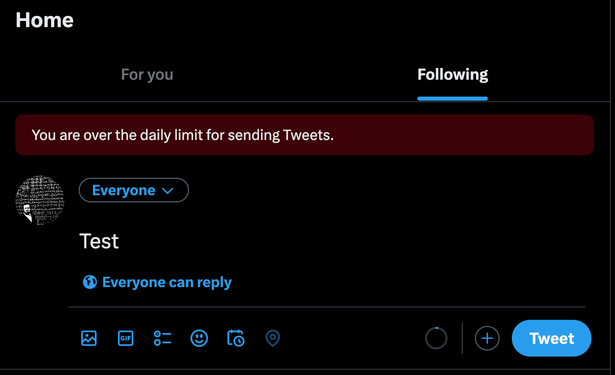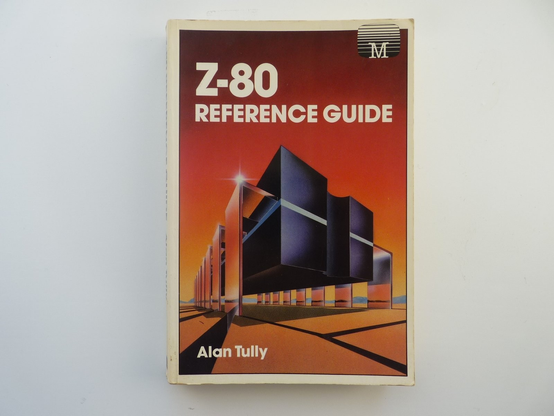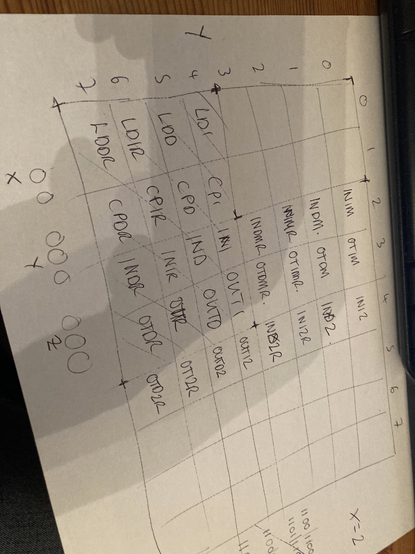@enicon Oh hello! Indeed!!
Software developer & electronics dabbler Restoring & programming vintage computers from Acorn Atom to ZX81.
@ukscone Ah, the Agon will be back, for sure. I've got some ideas for a neat app, alongside all the bug fixes and improvements.
@RobeeShepherd I should spend more time on here. Twitter is just a habit, and there are still some folk on there that I chat too. I do tune into Mastadon daily.
@ukscone I will be fitting it with a Gotek at some point, and will be compiling the code on the disks using Mike's original assemblers (6502/Z80) to produce object code which should run on the C64/Spectrum/Amstrad.
@ukscone Just using it at the mo to get some data off a box of 3" disks I've been given. Yes, it was the machine of choice. The Tatung was quite popular around Manchester. Mike Webb (who worked at Ocean, maybe Binary Design, then Software Creations) developed a dev system around it, and it was borrowed/copied by various companies in the area. I think the Tatung was chosen because it was cheap and robust.
@nyquildotorg Mmm... yes.
@TopazRabbit Grand! You can't beat a good book collection. I don't know about you, but it's quite interesting going back to the books with (in my case) 40-odd years of experience.
The plan is to transfer all the files off these disks to a PC and publish them on a Git. I am not sure about the editors as I've not asked permission from the authors yet. They should run as self-contained trackers to play the tunes though once assembled.
Some of the disks contain Mike Webb/Ste Ruddy's Z80/6502 assembler/editor. I managed to load the 6502 one and some source for what appears to be the SID music for Black Lamp.
Bought a Tatung Einstein last March, and only just got around to firing it up. It was bought with the intention of transferring a box of disks given to me by Tim Follin that contain the source files for some of his SID and AY chip music...
Thankfully it worked first time, and I was able to read one of the disks. I was half-expecting to do a 3" drive service.
@rc2014 Yeah, I know what you mean. I'm kind of hanging in there at the mo as there are some folk on there I still chat to.
@rc2014 Looks like Twitter is down - downdetector etc.
I mean, I know I tweet a lot, but not 2,400! Sigh.
https://help.twitter.com/en/rules-and-policies/twitter-limits#:~:text=Current%20Twitter%20limits&text=Direct%20Messages%20(daily)%3A%20The,limits%20for%20semi%2Dhourly%20intervals.
What the heck? Currently unable to send tweets from any of my accounts.
One of my biggest regrets is the decision 30 years ago to give away all my programming reference books, assuming I'd never need/want them again. I've been looking out for this one for a couple of years now: it's like the proverbial hen's teeth. Whilst it's not as influential as the seminal "Programming the Z80" (Rodney Zaks), it is the book I could afford as a 15-year old, and served me well for a few years, developing games on the ZX Spectrum and Amstrad CPC.
Anyway, was checking on the progress of an order on Amazon and threw up a search and there was a copy for sale on World of Books (Amazon Marketplace) for £3.20. Kerching!
So I'll own the holy trinity of books that got me into assembly language programming:
- Mastering Machine code on the ZX80/81 by Toni Baker
- The Complete Spectrum ROM disassembly by Frank O'Hara and Ian Logan
- That
I'm doing my happy dance now.
@mrplado Yeah, I've been referring to them. It's translating them to fit into this schema, so I know where to put them in the code.
http://www.z80.info/decoding.htm
I've updated my agon-projects repo to include precompiled binaries for the disassembler and memdump utilities.
Bit of a mind bender trying to work out how the extra instructions fit in the standard Z80 opcode map; here's my scribbled notes for the block instructions.
